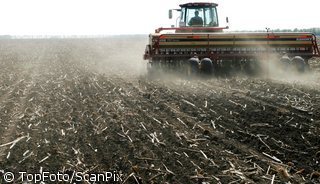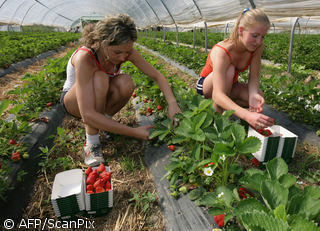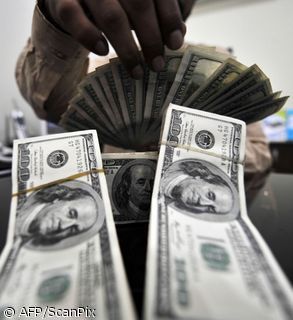Dragon Oil and Petronas to Yield Their Shares in Turkmen Projects to Russia's Zarubezhneft and Itera
Published:
19 October 2003 y., Sunday
Western companies have been contemplating whether to accept or reject Ashkhabat's offers to develop the hydrocarbon reserves on the Turkmen shelf of the Caspian Sea. Turkmenistan has insisted that its 32 blocks totaling over 70 thousand square kilometers contain 16.5 billion tons of oil equivalent. Investors are daunted not only by the insufficient extent of the blocks' exploration but also by the absence of export prospects. Dragon Oil and Petronas are showing investors one way out of this blind alley with their plan to concede their project shares to the Russian company Zarubezhneft and international gas trader Itera in exchange for access to export trunks.
Russian Zarubezhneft and Itera are planning to set up a joint venture to participate in at least two oil-and-gas projects on the Turkmen shelf of the Caspian Sea. A source close to Zarubezhneft executives told RusEnergy.com that these are projects to develop the Cheleken Block and the neighboring Block-1. A little earlier, Zarubezhneft CEO Nikolai Tokarev affirmed it in an interview to the Oil & Capital magazine (№ 11 - 2001). Official representatives of the operators, however, refuse to confirm the existence of the deal with Russian companies.
An agreement on the Russian joint venture unifying the projects will be signed in the coming months, a source in Zarubezhneft reports. The joint venture will allegedly acquire an unspecified part of the present participants' shares. Currently, these projects are already being implemented in accordance with the production sharing agreement (PSA) between Turkmenistan and foreign companies. Dragon Oil is the Cheleken operator with its controlling stock owned by the United Arab Emirates (through the Emirates National Oil Company). Malaysia's Petronas is the operator of the Block-1 development project.
The intention of the Zarubezhneft-Itera alliance to join the projects has received an enthusiastic response from both foreign companies and Turkmen authorities. After meeting with the heads of the Russian companies Turkmenistan's president Saparmurat Niyazov declared his support of their plans.
Šaltinis:
RusEnergy.com
Copying, publishing, announcing any information from the News.lt portal without written permission of News.lt editorial office is prohibited.
The most popular articles
 In another move to strengthen the financial system, the Commission is proposing controls on credit rating agencies - private companies that evaluate financial risks for investors.
more »
In another move to strengthen the financial system, the Commission is proposing controls on credit rating agencies - private companies that evaluate financial risks for investors.
more »
 Monday 10 November saw a large report land on the desk of MEPs in the Budgetary Control Committee.
more »
Monday 10 November saw a large report land on the desk of MEPs in the Budgetary Control Committee.
more »
 EU wants G20 meeting to pave the way for reform of the international financial system.
more »
EU wants G20 meeting to pave the way for reform of the international financial system.
more »
 New Yorkers reflect on the election of Barack Obama as the 44th President of the United States.
more »
New Yorkers reflect on the election of Barack Obama as the 44th President of the United States.
more »
 The ability of the EU's common agriculture policy (CAP) to cope with the challenges of affordable food and climate change was discussed in Brussels 3-4 November.
more »
The ability of the EU's common agriculture policy (CAP) to cope with the challenges of affordable food and climate change was discussed in Brussels 3-4 November.
more »
 European Union economic growth should be 1.4% in 2008, half what it was in 2007, and drop even more sharply in 2009 to 0.2% before recovering gradually to 1.1% in 2010 (1.2%, 0.1% and 0.9%, respectively, for the euro area).
more »
European Union economic growth should be 1.4% in 2008, half what it was in 2007, and drop even more sharply in 2009 to 0.2% before recovering gradually to 1.1% in 2010 (1.2%, 0.1% and 0.9%, respectively, for the euro area).
more »
 There are an estimated 4-8 million immigrants working illegally in the European Union.
more »
There are an estimated 4-8 million immigrants working illegally in the European Union.
more »
 Hit by economic turmoil and the sharp global downturn, growth in the EU slows almost to a halt.
more »
Hit by economic turmoil and the sharp global downturn, growth in the EU slows almost to a halt.
more »
 The top priority is to cushion the impact of the financial crisis on jobs, purchasing power and prosperity of EU citizens.
more »
The top priority is to cushion the impact of the financial crisis on jobs, purchasing power and prosperity of EU citizens.
more »
 The International Monetary Fund has approved short-term financing to help emerging market economies weather the global financial storm.
more »
The International Monetary Fund has approved short-term financing to help emerging market economies weather the global financial storm.
more »